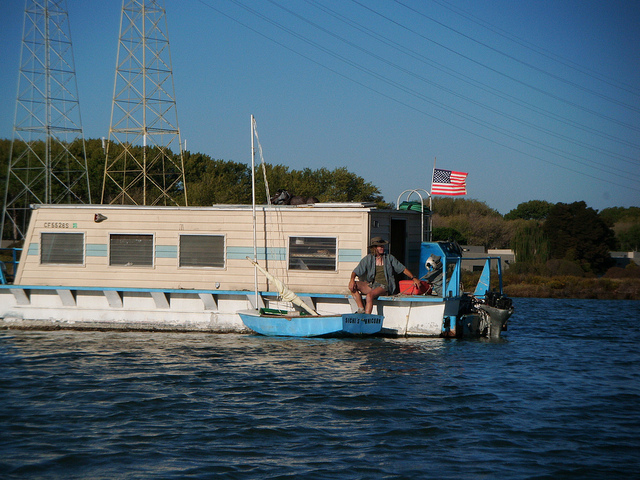It was a beautiful evening for a stroll tonight, so I went down to one of my favourite places: Toronto’s waterfront. Listening to the melee of languages, observing the broad mixture of people, I was thinking about upcoming travel plans, business issues, articles to write for the website, and many other things. I liken this feeling to a hamster on a wheel who’s constantly spinning and moving. My brain was working overtime, which happens a lot when I think about the website and all the ideas and topics I’d like to write about.
So I am strolling by the sailboat harbour at Ashbridges Bay, a particularly serene place with a quiet little inlet surrounded by willow trees on the east side, on the north side there is a private marina where hundreds of sailboats are docked, on the south side there is a little peninsula with just a few places where a variety of boats can anchor at the municipal docks.
So I am walking, enjoying the reflections of the evening sunshine playing on the water, listening to the joyful songs of the birds, observing bikers, walkers, rollerbladers, watching the boats……… and then I had an idea – I might as well interview on of these boaters and find out a bit more about their lifestyle and travel adventures.
I approached a houseboat and I saw that the captain was sitting on the bridge. I knocked on the glass door and asked if I could do an interview with him. The man, a white-haired bearded man in his 60s, was very welcoming and invited me in. He actually asked me to sit in the captain’s chair and I shyly accepted.
He introduced himself as Ron, “Captain Ron”, a name by which he is well known in the Lake Ontario boating community. Ron is a former corporate sales manager, now comfortably retired, with an active lifestyle. Ron still has a house in Whitby, just outside of Toronto, but he spends a lot of his time on the houseboat, and many of his friends live full-time on a houseboat.
His particular boat is an Intracoastal houseboat, meaning it has a hull and is more seaworthy than pontoon houseboats. It was made in 1970, and cost $17,000 when it was new. Ron has had it for 18 years and he regularly gets offers from people who want to buy it. Recently someone offered him $50,000 in cash for the houseboat. But since Ron loves the lifestyle, and a new boat would probably cost $150,000 to $200,000, it makes no sense for him to sell his beloved house on the water. He politely declined the offer.
The boat has an elevated bridge which not only houses the “steering wheel” (is that proper marine terminology?), but also accommodates a fold-out double bed. A few steps down is the galley on the left, and a bathroom with a combined toilet, sink and shower on the right. Beside the bathroom is a small door leading down to the cabin that has 4 bunk beds. Behind the kitchen is the living room area with an eating nook and another double fold out bed.
In theory the houseboat can sleep 8 people, but Ron said that you would not want to cram that many people on board with just one small bathroom. Makes a lot of sense… Ron seems to be travelling mostly by himself, judging by the lone deck chair that was located on the boat’s top deck from where I had a perfect view of the serene harbour setting. Ron says Ashbridges Bay is one of his favourite spots and he was sitting there quietly, enjoying the evening, when I approached him for the interview.
Ron uses the boat about 6 months of the year, he puts it in the water in mid April and takes it out in mid October and he mostly cruises Lake Ontario with it. From the 1000 Islands in the east near Kingston, a city that he loves (me too…), to Toronto with its islands, and St. Catharines with its Port Dalhousie harbour, he actively cruises the north shore of Lake Ontario.
He commented that the harbours on the US side of Lake Ontario are not as clean and unfortunately since 911, the American Coastguard has become overly protective, he said even paranoid, and the minute they see him, they figure he must be a drug smuggler and they put him through the third degree. So he prefers to cruise the Canadian side of the lake.
Many of Ron’s friends actually live on a houseboat full-time. They sail northern waters in the summer and then connect through the Ohio River – Mississippi waterway system down into Gulf of Mexico from where they sail down to southern Florida. On the way back in the spring they take the Intracoastal Waterway (the “Ditch”) to come back up north for the summer.
Ron also has a lot of friends who have ocean-going sailboats who spend much of their time in the Caribbean. As a matter of fact, one of his friends has a unique type of sailboat that was recently commandeered by the producers of the sequel for “Pirates of the Caribbean”.
Naturally I asked Ron about the cost of houseboating. Apart from the purchase costs, which he estimated at $150,000 to $200,000 for a new boat, there are dockage costs, fuel, insurance, repairs. He said he spends about $1000 on fuel, and about $5,000 a year for dockage and other operating costs. According to Ron, the people that do the Canada-Florida run usually spend anywhere from about $10,000 to $30,000 for the round-trip which could take a whole year. The cost at the lower end means that you are using the on-board kitchen (or rather, galley) facilities, you are staying at town docks rather than private marinas, using the boat’s shower, rather than the marina’s expensive facilities. Since Ron is a good cook, he practically always uses his boat’s kitchen to make his meals, a huge savings.
Captain Ron has really figured out a perfect retirement lifestyle for himself. He houseboats in the summer, goes deer hunting in the fall, heads out of Ontario to Florida or British Columbia in the winter, where he either stays with friends and family, or rents a reasonably priced apartment inland from the coast. Or, if he sees a good offer in the newspaper, he might just hop on a plane to Mexico for a quick getaway. And he loves to spend the summers in Ontario, where he cruises Lake Ontario and spends some time on beautiful Georgian Bay where his brothers live.
According to Ron, the key thing in retirement is health, and he works hard to stay healthy. He plays tennis, rides his bike, he loves to swim and he works out. He said, particularly if you want to travel to the US as a retiree, being healthy is critical. His brother had a heart attack in Florida, and his health insurance wouldn’t cover his treatment costs, and he ended up a with a $150,000 bill at the end. No wonder Captain Ron considers good health a key factor for travelling….
Captain Ron gave me a glimpse into his unique lifestyle, and I couldn’t help but envy him a little. He seemed so peaceful, so relaxed, enjoying the evening sun looking out over the water. I realized that he’s figured it all out, and he’s created his perfect little niche for himself……


